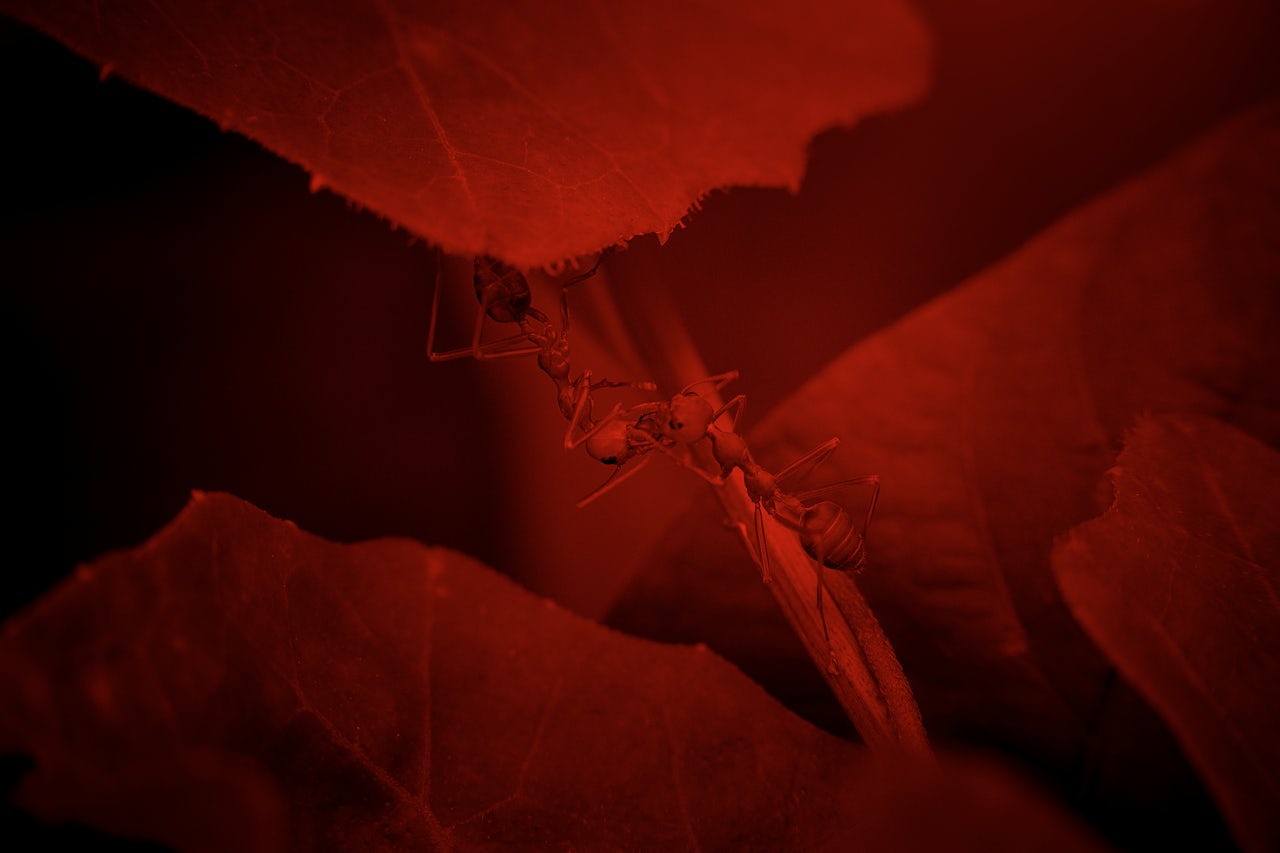In 1923, the Swiss scientist Auguste-Henri Forel published a five-volume study called The Social World of Ants Compared with That of Man. It was the product of over 50 years of research and was influential in defining the field of myrmecology, or the study of ants. In this book, Forel, who was an outspoken socialist, depicted the world of ants as a model for human societies—defined by mutual regard, communal distribution of labor, and selfless hard work.
Other entomologists, though, took issue with how directly he pushed his politics through scientific analogy. Fellow myrmecologist, Horace Donisthorpe, wrote in a review of the book: "An entomological work is not the appropriate means for the introduction of political theories of any kind, still less for their glaring advertisement.” More than just a debate about whether ant societies are socialist in structure, this was a disagreement about whether it is appropriate to use these tiny creatures to fight political battles. Almost 100 years later, this debate is again being played out after the publication of two ant studies.
The first, published last week in Science, found a strategic inequality in the way ants go about some of their work. In a colony of fire ants, around 30 percent of worker ants shoulder 70 percent of the workload, leaving many others to hang around in a state of restless inactivity. This inequality in the division of labor, the researchers concluded, was part of an optimization strategy that allowed that tunneling to get done faster. “We found a functional, community benefit to this seeming inequality in the work environment,” researcher Daniel Goldman said in a statement. “Without it, digging just doesn’t get done.”
Shortly after this paper was published, clinical psychologist and alt-right hero Jordan Peterson tweeted out a link to the study that offered his own interpretation of the findings. “30% of the ants to 70% of the work,” he wrote. “Not a consequence of the West, or capitalism, in case it needs to be said.” He seemed to be trying to say the best and most talented ants do most of the work and carry the rest of the lazy, inefficient population on their backs, using ant behavior to suggest that his Ayn Randian vision is hard-baked into the natural world.
Entomologist Alex Wild took issue with Peterson’s analogy and tweeted in response: “trying to make any points about human societies from ants is kind of stupid. We’re not ants. Ants aren’t people.” Like Donisthorpe before him, Wildwas objecting to how Peterson used the scientific study of ants to make a political point. But unlike Forel, Peterson didn’t even get the science right. As Wild pointed out, Peterson misinterpreted the study—it did not show that 30 percent of ants are elite and 70 percent of ants are lazy free-loaders, but that they are all equally proficient, but would await their turn to work if and when they were needed.
In a second ant study recently published in Nature, researchers came to a slightly different conclusion about ant behavior. They monitored ants in groups ranging from 1 to 16 and found that while the bigger groups thrived, created offspring, and divided labor efficiently, the small groups were more unstable and less productive. This was despite the fact that the groupings of ants were homogenous. Whereas ant colonies are usually made up of a variety of different types — queens, workers, soldiers — the researchers made sure that these groups were genetically identical. Despite this, the groups were still able to be productive, and even find new ways of working together. "You would think, if you pair similar individuals from a single species, their function would be redundant," said lead researcher Daniel Kronauer. But his findings showed that group living confers immediate benefits, even among homogenous individuals.
For the researchers, these findings demonstrated how simple societies can have an evolutionary advantage over individuals living by themselves. While the findings were useful in understanding how complex animal and human societies evolved, this is where the study’s analogy between ants and humans stop, which is probably for the best. What people like Donisthorpe and Wild point out is that it is dangerous to use the scientific study of ants as a direct analogy to human behavior, as tempting as it might be, as the behaviors of these insects can be interpreted in many different ways, even for opposing political ends. It is not hard to see how a racist might misconstrue Kronauer’s research to be some affirmation of racial homogeneity, or, on the contrary, a socialist like Forel could use the results as a defense for communal living.
This is a point that Wild deftly made in a follow up tweet to Peterson. “100% of all the ants who ever worked are female,” he wrote. "If you’re really going to run with stupid ant/human analogies, you may as well run with Jordan Peterson being a lazy grifter because why the hell not, male ants don’t work and as far as we know Jordan Peterson is male.”
